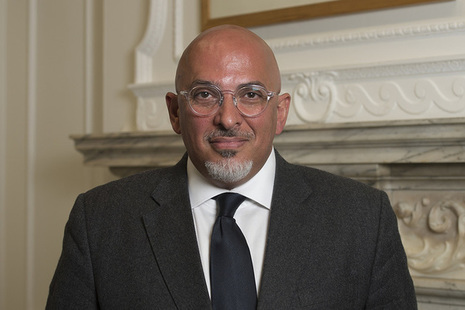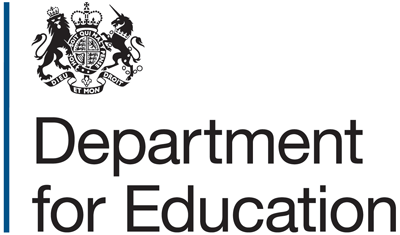Education Secretary leads call to tackle antisemitic abuse on campuses
- Antisemitism summit will bring together vice chancellors and leading Jewish rights groups to discuss key issues affecting staff and students
- A number of commitments will be discussed to bring down antisemitic incidents on campus
- Today’s summit follows significant success tripling the number of universities signing up to the IHRA working definition of antisemitism.
Urgent action is required to stop antisemitic abuse on campuses, the Education Secretary has said ahead of a summit he is hosting with vice chancellors, university reps and Jewish rights groups today (26 January).
The antisemitism summit, being held by Nadhim Zahawi ahead of Holocaust Memorial Day (27 January), will look at the incidents of antisemitism on campus and discuss measures and commitments that can be taken to ensure Jewish students and staff feel safe in higher education.
This could include working with the Community Security Trust (CST) to improve data reporting from universities to help build a better picture of this issue and sharing cases of best practice. Alongside these discussions, the Union of Jewish Students (UJS) will run a training workshop for attendees about how to improve support for Jewish students who have been victims of antisemitism.
 Education Secretary Nadhim Zahawi said:
Education Secretary Nadhim Zahawi said:
“In November I visited Auschwitz and was humbled by the experience. Seeing first-hand the spectre of a concentration camp which bestowed so many horrors is something which will stay with me for the rest of my life.
“It also strengthened my resolve to fight the lingering plague of antisemitism still sadly present in our society. Ahead of Holocaust Memorial Day, today’s summit marks a significant step towards that goal.
“Education is the vaccine against antisemitism. No Jewish students or staff members should be subjected to antisemitic abuse, and by working together we will send out a clear message that antisemitism – like other forms of racism – will never be tolerated in our classrooms or campuses.”
 Minister of State for Higher and Further Education Michelle Donelan said:
Minister of State for Higher and Further Education Michelle Donelan said:
“I am horrified by the very thought of even one incident of antisemitism on campus – it has no place within any of our world leading universities.
“I will work hand-in-hand with the sector to take forward commitments agreed to today and ensure providers have the right tools to tackle this issue.
“Finally, I want to take this opportunity to urge those few universities yet to sign up to the IHRA’s definition of antisemitism to follow in the footsteps of many others and do so now. Without a universal recognition of antisemitism, we cannot hope for its abolition.”
UJS President Nina Freedman said:
“We are so excited to be a part of this campus antisemitism summit. It is great to see the Department for Education taking action on this incredibly important issue. Hopefully this summit will just be the first step in a collaborative plan to combat antisemitism in higher education.”
“Antisemitism awareness training is a vital and effective tool for rooting out antisemitism in the higher education sector. We hope to empower as many people as possible to recognise and call out antisemitism where they see it in any form”
CST Chief Executive Mark Gardner said:
“Record levels of antisemitism have been reported by Jewish students and teaching staff, so this is a vital meeting with the Education Secretary, the Universities Minister and numerous vice chancellors. It is the leadership of the universities who need to take antisemitism seriously and fulfil their duties of care. CST looks forward to working closer with universities in improving both the recording of antisemitic incidents on campus, and in supporting those suffering from antisemitic double standards, exclusion and abuse”
Attendees invited to today’s summit will include vice-chancellors from universities across the country as well as sector leaders such as Universities UK alongside representatives of key Jewish organisations such as the Union of Jewish Students (UJS) and the Jewish Leadership Council.
Those in attendance will discuss a number of potential actions to help tackle antisemitism:
- The Union of Jewish Students will be delivering a training workshop for providers in order to help them better understand what antisemitism is, and to support students facing it. Details of the free training are available on their webpages.
- Vice Chancellors attending will be invited to share and publicise case studies to help share best practice among the higher education community, following the Office for Student’s successful publication of case studies. Tackling antisemitism – Office for Students
- At the summit leaders will hear from the Community Security Trust which collects data from across the sector, to learn how to build a better picture of patterns of antisemitic incidences, which can help targeted interventions. Open data reporting is an important step in recognising the problem of antisemitism on their campus and is a strong message to Jewish students that their concerns will be listened to. It also allows a picture to be built of patterns of antisemitic incidences, which can help targeted interventions.
The summit builds upon the Department for Education’s ongoing commitment to work with Higher Education providers in England to acknowledge and eradicate antisemitism.
Figures published by The Times November last year showed there were 111 antisemitic incidents recorded at British universities in the 2020/21 academic year – a rise of 59 per cent on the previous academic year.
To officially recognise the issue of discrimination towards Jewish people within the sector, last year the Department for Education called upon more Higher Education providers to sign up to the International Holocaust Remembrance Alliance’s (IHRA) definition of antisemitism.
Following these calls, as of November 2021, more than triple the number of universities have signed up to this definition – up to 95 from 28. Research from Union of Jewish Students showed that this represented a significant increase of 67 universities when compared to figures from September 2020.
—————————————————————————————————————————————
Your help to our media platform will support the delivery of the independent journalism and broadcast the world needs. Support us by making any contribution. Your donation and support allows us to be completely focus, deeply investigative and independent. It also affords us the opportunity to produce more programmes online which is a platform universally utilised.
Thank you.
Please click link to make – DONATION










